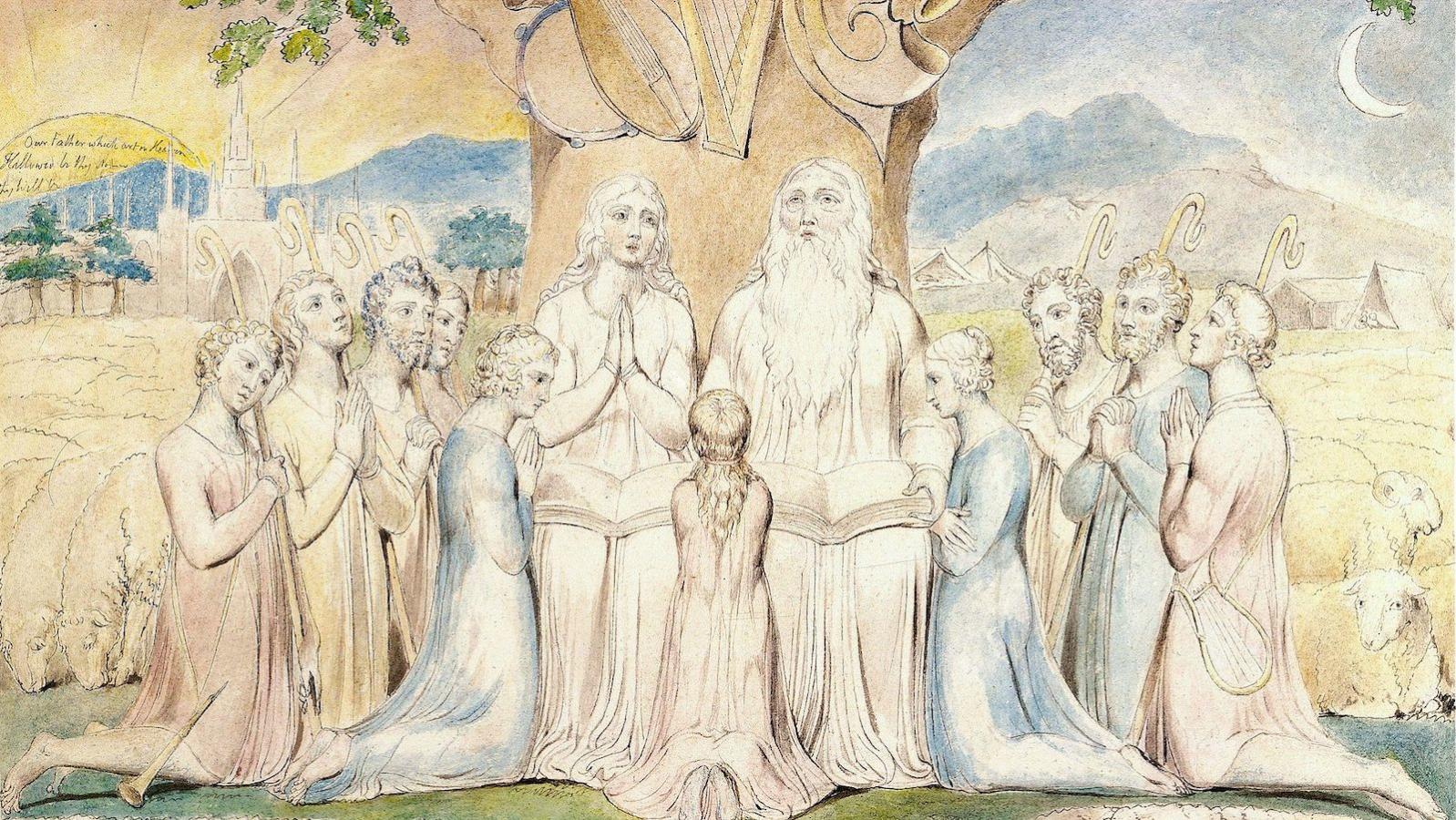The Book of Job is one of the most problematic portions of the Bible and has called forth a variety of interpretations. A major difficulty in understanding the meaning of the book is, what insight leads Job to submit so humbly to God at the end. (It should be kept in mind that Job is not the author, but the principal character.)
Read the full text of the Book of Job in Hebrew and English here.
There are important and subtle differences between the various modern scholarly views, but they usually revolve around two aspects of God’s speech from the whirlwind. First, that the divine voice does not answer Job’s complaint directly, but instead describes the wonders of creation, pointing to natural occurrences that surpass the limits of human understanding. Second, that Job does indeed receive an answer.
The Mystery of Job
One widely held view is that the climax of the book teaches that God’s purposes and ways are mysterious and unfathomable, hidden from his creatures. Given the difference between infinite God and finite man, theodicy is not possible. (Theodicy is the theological justification of God’s goodness in relation to his omnipotence [i.e. his all-powerful nature].)
With your help, My Jewish Learning can provide endless opportunities for learning, connection and discovery.
Walther Eichrodt writes, “In the speeches of God in the book of Job, this God of men’s construction [the traditional theodicy of the friends] is opposed to the incomprehensibly wonderful Creator God, who cannot be caught in a system of reasonable purposes, but escapes all human calculation.”
Also taking note of the preoccupation with the beauties of nature in the speech from the whirlwind, but drawing a less extreme conclusion, is Robert Gordis, who suggests that the author implies that there is an analogy between the harmonious order of the natural world and the moral order. “What cannot be comprehended through reason must be embraced in love.”
Several scholars have turned to an earlier chapter of the book for the key to the divine speeches (chap. 28, especially 28:28). A righteous man cannot know why he suffers and the wicked prosper, because men’s wisdom is not God’s. YHVH [i.e. God] keeps his cosmic wisdom from human beings, giving them instead a “fear of God” as their own precious and proper concern.
God Comes Out of Hiding
The second aspect of the speech of the voice from the whirlwind is that it takes the form of a theophany [divine speech].
Martin Buber writes, “But how about Job himself? He not only laments, but he charges that the ‘cruel’ God had ‘removed his right’ from him and thus that the judge of all the earth acts against justice. And he receives an answer from God. But what God says to him does not answer the charge; it does not even touch upon it. The true answer that Job receives is God’s appearance only, only this, that distance turns into nearness, that ‘his eye sees him,’ that he knows Him again. Nothing is explained, nothing adjusted; wrong has not become right, nor cruelty kindness. Nothing has happened but that man again hears God’s address.”
According to this position, the answer to Job’s dilemma is found in religious experience, not in theological speculation. Rather than a theoretical solution to Job’s problem, there is an ineffable [indescribable] self‑manifestation of deity to the individual in his particularity.
In H. H. Rowley’s interpretation, “All his past experience of God was as nothing compared with the experience he has now found. He therefore no longer cries out to God to be delivered from his suffering. He rests in God even in his pain.” If the theophany is made central, then the book of Job can be seen as a large‑scale psalm of lament, like Psalm 73, in which accusation and doubt are resolved by an experience of reaffirmed faith and trust.
Rejecting Divine Retribution
A quite different interpretation has been proposed by Matitiahu Tsevat in his essay, “The Meaning of the Book of Job.” Tsevat suggests that the content of God’s speech is intended to convey a picture of the universe deliberately at variance with that held previously by Job and the friends. In the friends’ insistence that Job’s suffering meant he had sinned, and in Job’s demanding a specific reason why he, in his innocence, should suffer, both sides had presumed the reality of reward and punishment in the cosmos.
Perhaps, however, the voice from the whirlwind is asserting that there is no such law of retribution and that nature is neutral to man’s moral action. The sun rises on the righteous and sinner alike (28:13, 15). Rain falls on the desert, whereas it could have been directed only to the cultivated land where it is needed by men (38:26‑27). Wild animals do not observe the tenets of human morality (38:15‑16). Accordingly, God’s speech can be construed to imply that material prosperity and misfortune do not constitute divine recompense or chastisement.
Tsevat proposes that only the concept of a cosmic order that does not operate according to a built‑in principle of moral retribution makes possible the selfless piety that was the first issue posed by the book of Job.
“It would be a grave error to interpret [the book’s] denial of divine retribution as constituting a legitimate excuse for man from his obligations to establish justice on earth. Justice is not woven into the stuff of the universe nor is God occupied with its administration, but it is an ideal to be realized by society.”
The author of Job may be denying one fundamental assumption of the narrative and prophetic books of the Bible, but his denial is consistent with another, even more fundamental assumption: that it is up to man to carry out God’s commandments and that this primary task must be done in society and actualized in the course of history. A principle of automatic reward and punishment would, in fact, be a form of coercion, leaving no special realm in which man could exercise his moral freedom by doing the good from purely disinterested motives.
In God We Trust
Most interpreters agree that the ultimate theme of the book is the nature of the righteous man’s faith in God. As Leon Roth states, “The book of Job turns on the question of the nature of religion: Can man serve God for naught?…When Job says, ‘Though he slay me, yet will I trust in Him’ (13:15) [The second half of this verse may also be rendered, “yet will I argue with him.”.ed.], he vindicates both himself and God.”
The book reaffirms Job’s trust in God‑-and God’s trust in Job. In teaching that piety must be unselfish and that the righteous sufferer is assured not of tangible reward but of fellowship with God, biblical thought about justice, retribution, and providence reaches a climax‑-and a limit.
One alternative that the author of Job did not consider was that the sufferings of the innocent might be compensated in a future life. The problem of theodicy is resolved through just this means in post-biblical Judaism.
Reprinted with permission from Jewish People, Jewish Thought, published by Prentice Hall.



